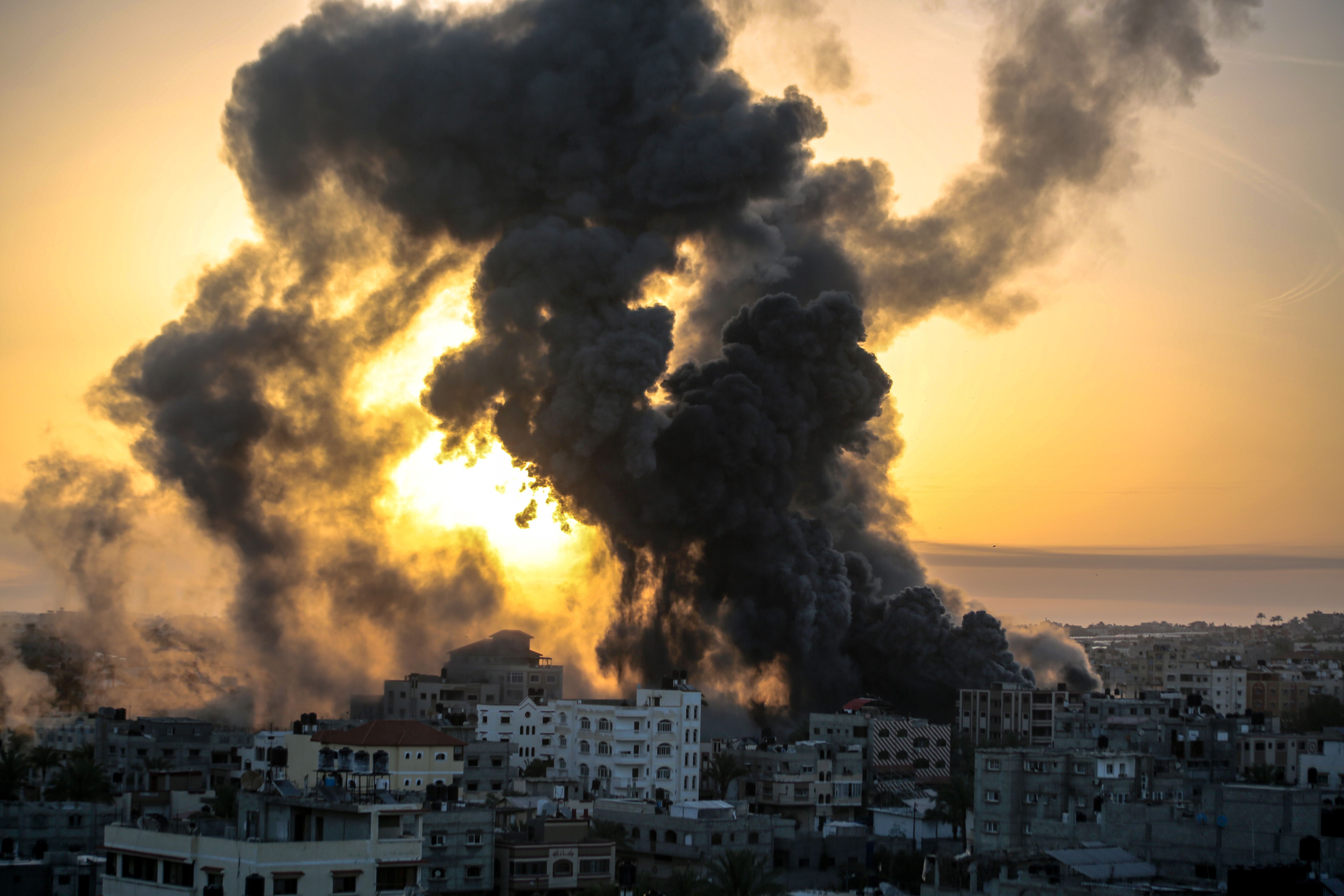Israeli-Palestinian Conflict—Escalation and Significance

What are the reasons for the escalation?
The immediate cause was the increase in sectarian tensions between the Arab and Jewish populations in Jerusalem, which have been rising since April. Protests related to the planned evictions of residents in one of the Palestinian districts of East Jerusalem, the increasing number of mutual attacks and provocations by nationalist groups, and the brutality of the Israeli police coincided with the period of religious (e.g., end of Ramadan) and political aggravation. A key factor was the cancellation of parliamentary elections scheduled for 22 May in the Palestinian Authority (PA), in which Hamas was the frontrunner. When the scale of violence in Jerusalem increased and Israeli police entered Temple Mount (Haram esh-Sharif, the third holiest site in Islam), among other things, the Hamas military wing decided to launch rocket attacks. This action was met with retaliatory air raids by Israel on the Gaza Strip.
What does the course of the fighting indicate?
The current escalation is the most severe since 2014. Rocket attacks by Hamas against Tel Aviv, Jerusalem, and other densely populated areas in Israel and the number of projectiles indicate a readiness for full confrontation. The Israeli counter-attacks are aimed at weakening as much as possible the combat potential (both infrastructure and personnel) of Hamas and other groups considered by Israel as terrorist, hence their high frequency. A limited operation by Israeli ground forces in parts of the Gaza Strip is likely. The high effectiveness of the Iron Dome air defence system is also visible (it has intercepted 90% of the projectiles). So far, the situation in the West Bank has remained relatively stable. What is different this time is the escalation on Israeli territory—in recent days there have been numerous acts of violence between the Jewish and Arab populations (about 20% of Israeli citizens), especially in multi-ethnic cities, such as Haifa. This poses a significant challenge to Israel’s internal stability.
What are the political aspects?
Hamas wants to strengthen its position on the Palestinian political scene at the expense of Fatah. It lost the opportunity to prove it when the elections were postponed by President Mahmoud Abbas. Such a change of conditions prompted the Hamas leadership to pursue political goals by other methods and to respond by force to the situation in Jerusalem. In the Israeli context, the escalation benefits Prime Minister Benjamin Netanyahu by likely keeping him in office. It hinders the coalition talks among the Israeli opposition (its leader, Yair Lapid had just received a mandate to form a government before the escalation), which requires cooperation with Arab parties. Their support for a cabinet also formed with right-wing parties in light of the Jewish-Arab tensions would be politically very difficult.
What’s next?
The number of casualties and the scale of the attacks between Israel and Hamas (choice of targets, intensity of the exchanges, extension of operations of ground forces) will be decisive for whether the fighting continues. An important role will be played by the attitude of the PA apparatus, which is necessary to maintain stability in the West Bank. The key flashpoint remains Jerusalem, where restoring calm may signal de-escalation. The situation in Israel itself is a much more serious challenge, going beyond the security aspects. The short-term consequences of sectarian violence can be twofold. On the one hand, they may make it more difficult for the opposition to reach an agreement (which increases the likelihood of next elections). On the other hand, if the violence is perceived as a result of many years of negligence by Netanyahu’s government, this may consolidate the support of Arab party leaders (Ra'am, Joint List) in favour of changing the prime minister.
What are the international aspects?
Egypt remains the main channel of communication between Israel and Hamas, although mediation efforts to date have been unsuccessful. The escalation also forces American diplomacy to become more deeply involved in the Israeli-Palestinian conflict, which the Biden administration was trying to avoid. Greater involvement of Russia is also visible. A critical stance on Israel’s actions (especially in Jerusalem) was adopted by the Arab states, including those with which Israel normalised relations last year. Attempts to improve relations on the part of Turkey were also suspended (return to harsh rhetoric, cancellation of the invitation to a multilateral ministerial meeting). It is possible that for foreign partners the image of the Fatah-led PA leadership, presenting themselves as a moderate political force, will improve. EU states should be ready to increase humanitarian support to Palestine, but also to take political action after de-escalation.


